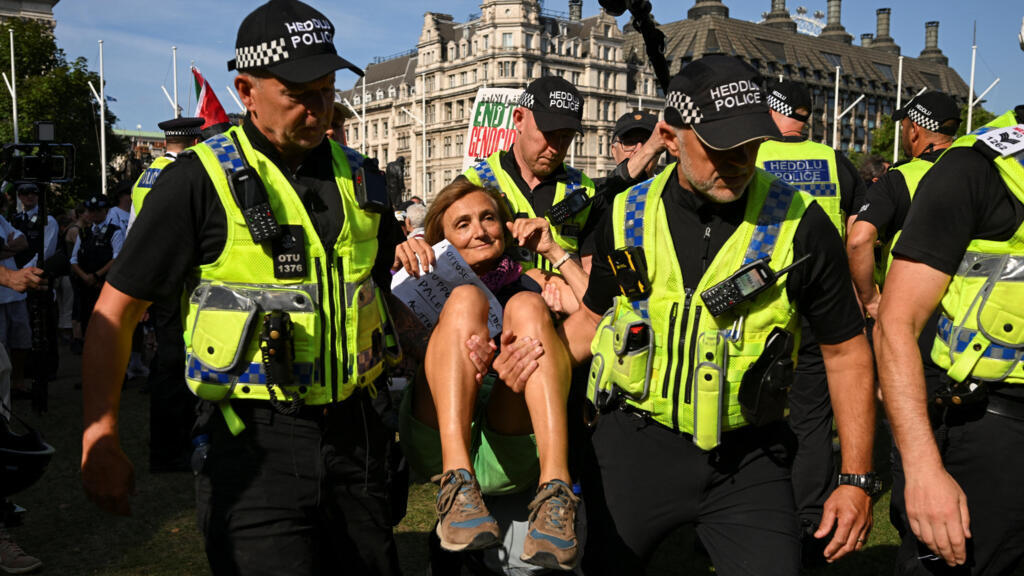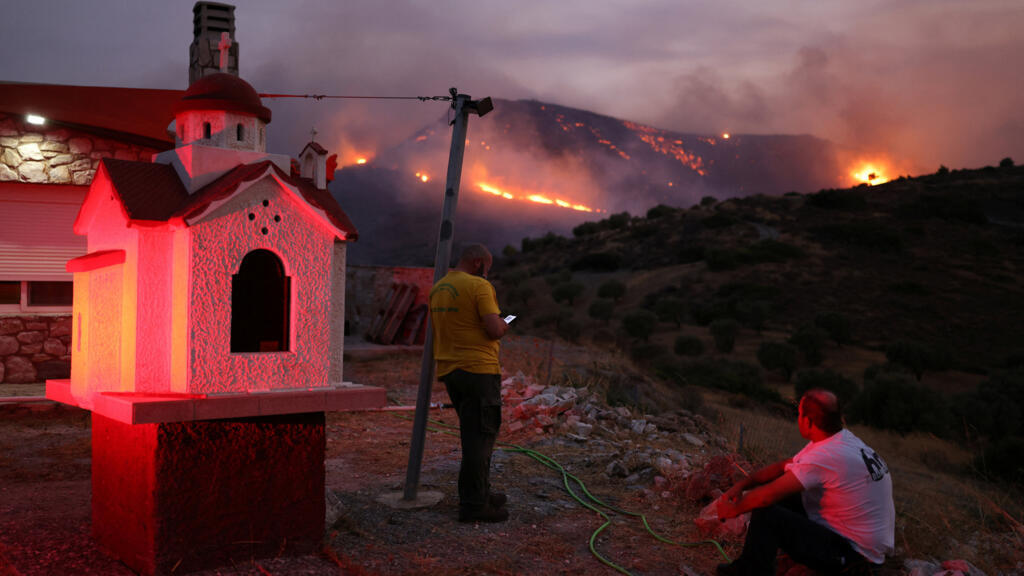Protests Erupt in London Against the Ban on Palestine Action
On a recent Saturday, London's Metropolitan Police made significant arrests during a protest against the British government's decision to ban the activist group Palestine Action. Over 466 individuals were detained as demonstrators voiced their opposition to the government's actions, which are seen by some as a suppression of free speech and a crackdown on activism. The protest highlights the rising tensions surrounding UK policies related to the Israeli-Palestinian conflict.
Palestine Action, formed with the intention of advocating for Palestinian rights, was outlawed under anti-terrorism legislation by British lawmakers in July 2023. This drastic measure followed a series of actions by group members, notably a break-in at a Royal Air Force (RAF) base. During this incident, demonstrators damaged military aircraft in a move aimed at drawing attention to their cause and criticizing the UK's military support for Israel.
The group's supporters argue that the UK government is complicit in what they describe as Israeli war crimes in Gaza. Palestine Action has garnered attention for its direct-action tactics, which include property damage against companies they accuse of complicity in arms sales to Israel. The protests are indicative of a broader discontent among segments of the British population regarding the government's foreign policy and its stance on the Israeli-Palestinian situation.
As tensions in Gaza have escalated, so too has the narrative surrounding Palestine Action. Everything culminated in a significant mobilization on the streets of London, where protesters waved banners and chanted slogans in support of Palestinian rights. The atmosphere was charged, reflecting not only the protesters' determination but also their frustration with the UK government's position and actions.
The Metropolitan Police's decision to arrest such a large number of participants has sparked debate over the limits of lawful protest and the definition of terrorism within the context of political activism. Critics of the police’s actions accuse them of heavy-handed tactics and an infringement on civil liberties. Many believe that the recipe for such a heavy police presence lies in the controversial nature of Palestine Action's activities and the government's response to the group's provocative methods.
Despite the arrests, the protest underscored a significant level of grassroots support for Palestine Action and the broader Palestinian cause. Activists are determined to continue raising awareness regarding the situation in Gaza and the role of the UK in international arms trade, which they claim fuels the conflict. The fallout from this weekend's protest is likely to resonate in British politics, as public sentiment shifts in response to issues of foreign policy and human rights.
Overall, the events of Saturday mark a crucial moment in the ongoing discourse about activism, free speech, and foreign policy in the UK. As the situation develops, it will be essential to monitor both the legal ramifications for arrested protesters and the potential for further demonstrations in the future. The ongoing public outcry suggests that the issues surrounding Palestine Action and its ban will not fade quietly into the background but will remain a focal point of activism and national debate.












